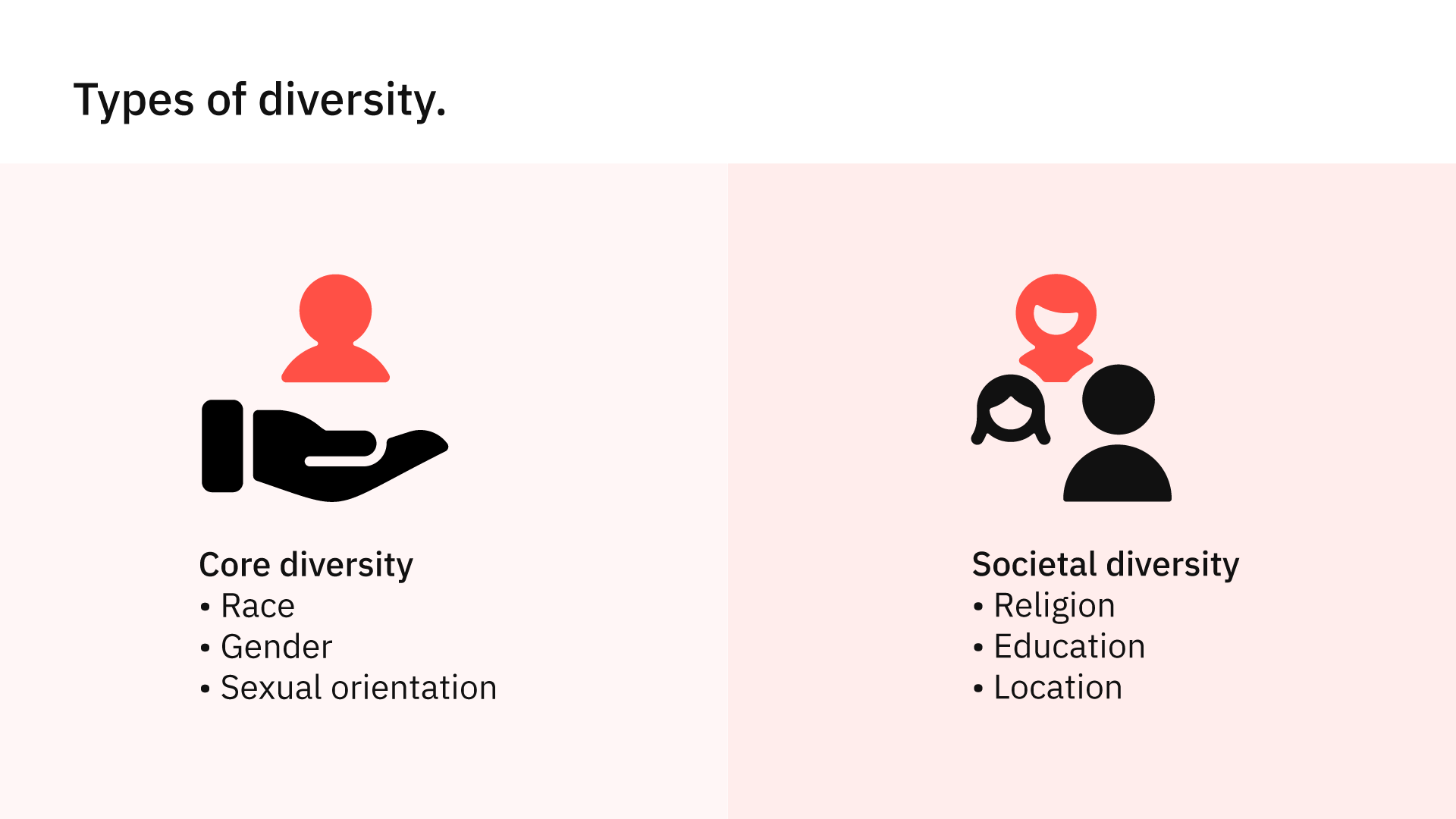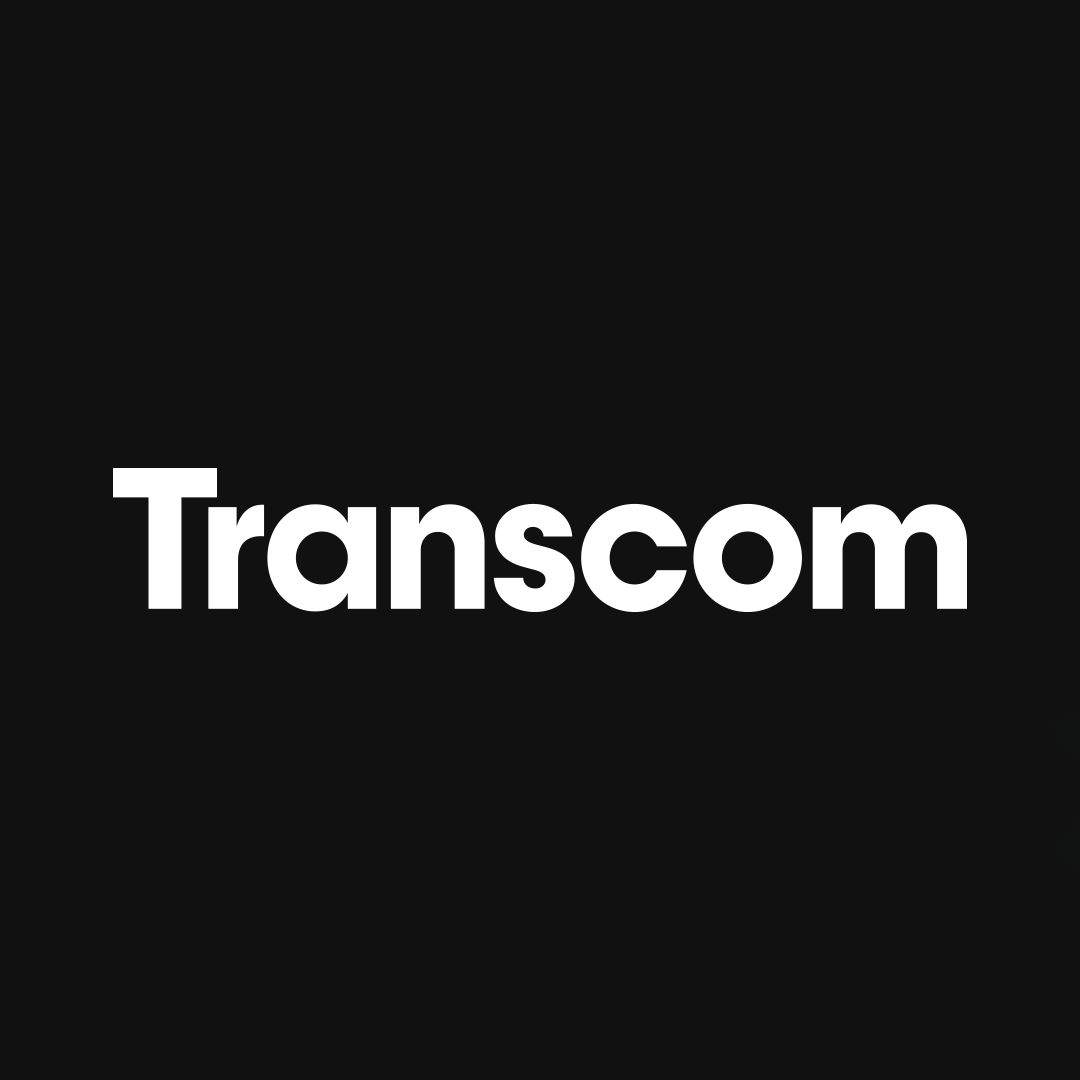
Types of diversity in the workplace.
Updated on October 16, 2024
In the dynamic landscape of job hunting, understanding the diverse threads that weave through workplaces is your secret weapon. It's not just about scoring a job - it's about thriving, evolving, and truly enjoying the workplace you’re in. So, grab your coffee (or tea, we're inclusive here at Transcom) and let's unravel the mysteries of workplace diversity - why it’s important, why you should care, and what types of diversity are there.
Why understanding types of diversity is important.
First we need to realize that understanding and appreciating various types of diversity is a must for anyone on the hunt for a new job. Why? Because it has, or at least it should, have a much bigger impact on your search than you may have thought.
So, how does diversity play a role? Well, it ensures that job seekers are evaluated based on their qualifications and potential contributions, rather than being subject to biases or discrimination. And you know what? This understanding becomes even more relevant when it comes to creating inclusive work environments. When organizations value diversity, they foster a sense of belonging, leading to higher job satisfaction and productivity among employees.
But wait, there's more. It's not just about personal benefits. Exposure to diverse perspectives, ideas, and approaches in the workplace actually helps with professional growth. You can become more adaptable and acquire a broader skill set, making you a valuable asset in the ever-changing job market. And let's not forget about the global nature of modern business. Companies are on the lookout for employees who can navigate and thrive in diverse cultural and social contexts because nobody wants a company stuck in the past.
Types of diversity.
Understanding the various types of diversity is crucial for several reasons, as it allows for the recognition, appreciation, and promotion of inclusivity and equality within a society or organization. They can be split into two categories: core and societal diversity. Here's an exploration of different types of diversity and why they matter. This is just the tip of the iceberg, made to show that there’s more to diversity than first meets the eye. We all understand why diversity is important to businesses, and to us as individuals, but this section will try to show why diversity should be important to you as a job seeker.
Core diversity.
This category is concerned with diversity from an internal standpoint. In essence, it's a concise journey into what makes you uniquely you, from the intricacies of your genetic makeup to the depths of your psychological landscape and the enduring qualities that shape your nature. Here is just a fraction of the kaleidoscope of factors that make us unique. The list is nowhere near complete and we will visit these and more in greater detail down the road.
Race.
Racial diversity is a pivotal consideration when searching for a job due to its multifaceted impact. Firstly, it fosters innovation and creativity, exposing individuals to a variety of perspectives that drive dynamic problem-solving. Beyond professional growth, diverse workplaces mirror the broader world we live in, creating environments that resonate with authenticity and representation. This exposure also enhances cultural competence, a critical skill in our interconnected world. Lastly, job satisfaction tends to be higher in workplaces with these types of diversity, contributing to a positive work experience.
Gender.
Gender-diverse workplaces are known for promoting equality and offering a more balanced representation of talent, which positively impacts decision-making and general skill level. While the case used to be that you had to be a man to get a job, things are moving to a position where nothing matters apart from your skills. Which ultimately means that gender diverse workplaces are the ones that are doing a better job than the rest.
Sexual orientation.
Sexual orientation diversity is a crucial consideration in the job search, as it fosters a workplace environment that values and respects the authenticity of every individual. Ultimately, job seekers who prioritize and appreciate sexual orientation diversity contribute to and thrive in workplaces that celebrate the diversity of human identity and expression. It shows companies what we deem important as a society, and diverse workplaces show that, as we like to say it, everyone can come as we are, and feel safe and accepted.

Societal diversity.
Other types of diversity are influenced not by you as a person, a human being or a living organism but the society you live in, as a citizen and individual. These range from just living in the place you live in to accepting or rejecting certain societal norms. From tolerance to absolute acceptance and community. Again, these are just examples, and nowhere near everything diversity has to offer, but they serve as a good jumping off point for later articles and your own delving into the topic.
Religion.
Religious diversity is a significant consideration when searching for a job as it fosters a workplace environment that embraces and respects individuals' diverse belief systems. Inclusive workplaces that value religious diversity contribute to a culture of tolerance and understanding. Sharing your customs with others brings us closer together, and respecting or even celebrating our religious choices and differences shows that what truly matters is the faith in the human spirit and unity above all.
Education.
Educational diversity is a vital consideration when seeking employment, as it brings a spectrum of skills, knowledge, and perspectives to the workplace. In a diverse educational environment, individuals with varied academic backgrounds contribute unique approaches and creative thinking. Moreover, a mix of educational backgrounds promotes a collaborative culture, where individuals learn from each other's expertise. Also, everyone can bring their unique twist to tasks. A copywriter versed in music can help out video editors. Designers who took creative writing classes can bring a fresh perspective to texts. The main point is not purely in your education, but how you use it.
Location.
With the advent of the work-from-home era, a diversity of locations people are in is becoming of greater and greater importance. A widespread team has its challenges but the pros outweigh the cons. Prioritizing location diversity aligns with the reality of businesses like Transcom which are operating on a global scale, positioning individuals to thrive in diverse markets and contribute meaningfully to the success of their organizations. As a person you are enriched by experiences from cultures near or far to you which allows you to grow both as a professional and individual
In conclusion.
Diversity has never been more important, and it just continues to rise on the list of priorities for employers and employees alike. At Transcom we firmly believe that just as consumers vote for companies with their money, so do potential employees with their applications. These are the factors that show if businesses are measuring up to moral and ethical standards. So, while ROI is important, the people you work with, their trust and comfort are what truly matters. If you would like to work in an environment that values you not in spite of your differences but because of them - apply to Transcom.
